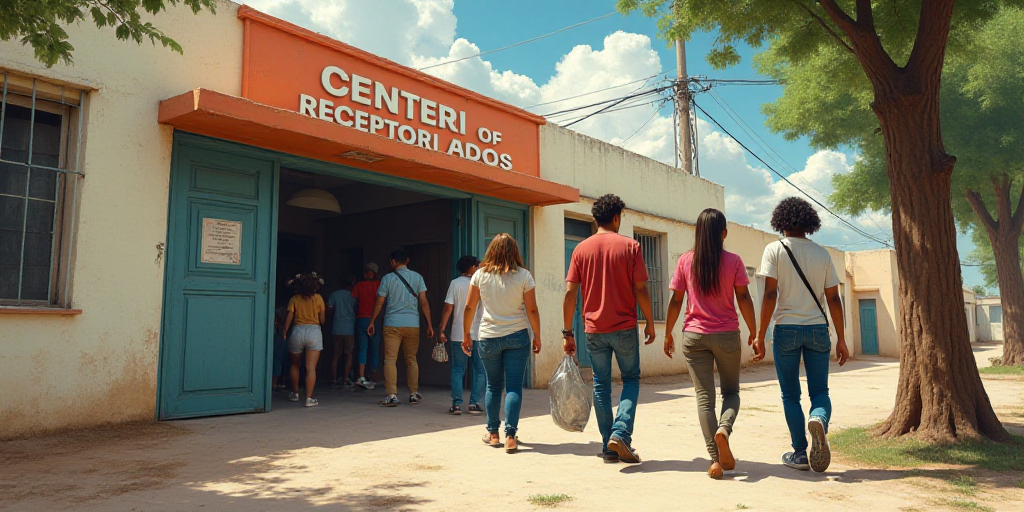Background on Nicaragua’s Political Situation
Nicaragua has been experiencing a political crisis since 2018, following widespread protests against President Daniel Ortega and his wife, Vice President Rosario Murillo. The demonstrations, which demanded democratic reforms and an end to corruption, resulted in over 300 deaths according to the United Nations. Ortega and Murillo have been accused of establishing a “family dictatorship” that controls all branches of the Nicaraguan government.
Guatemala’s Recent Actions
In September of the previous year, Guatemala welcomed 135 political prisoners released by Nicaragua for humanitarian reasons following U.S. mediation.
On this Friday, President Bernardo Arévalo of Guatemala announced that he would grant asylum to Nicaraguan migrants deported by the United States who do not wish to return to their homeland due to the ongoing political situation.
This decision was made through an agreement with the U.S., signed in February during Secretary of State Marco Rubio’s visit. The agreement allowed Guatemala to accept deportees from other countries, though none have arrived yet.
Arévalo’s Statement and Rationale
At a press conference, Arévalo stated, “We have accepted and decided that in the case of Nicaraguans who wish to stay in Guatemala because they cannot return to their country of origin due to the current political situation, they will be granted asylum status.”
He further explained that this move is an “expression of solidarity with the Nicaraguan people within the framework of norms established in Guatemala’s political constitution and mechanisms provided by international asylum conventions to which we belong.”
Nicaraguan Exile and Guatemala’s Policy
Since the 2018 protests, hundreds of thousands of Nicaraguans have sought refuge in countries like Costa Rica, the United States, and Spain. Guatemala’s constitution recognizes Central Americans as “Guatemalan by origin,” allowing them to acquire Guatemalan citizenship without losing their original nationality.
Arévalo highlighted Guatemala’s history of providing refuge to people under various circumstances, such as Spanish immigrants following the civil war (1936-1939).
Current Status of Nicaraguan Deportees
Of the 135 political prisoners released by Nicaragua, around 40 declined Spanish citizenship offered by Madrid and remain in limbo. These individuals now hope for asylum from the U.S., Canada, or Spain.
Key Questions and Answers
- Who is President Bernardo Arévalo? He is the current president of Guatemala who announced the asylum offer for Nicaraguan migrants.
- Why are Nicaraguans seeking asylum in Guatemala? Due to the ongoing political crisis and human rights concerns in Nicaragua, many Nicaraguans fear returning to their homeland.
- What is the agreement between Guatemala and the U.S.? The agreement allows Guatemala to accept deportees from other countries, including potential Nicaraguan asylum seekers.
- What is the history of Guatemala’s asylum policies? Guatemala has a history of offering asylum to people from various backgrounds, including Spanish immigrants after the civil war.
- What is the current situation of Nicaraguan deportees? Approximately 40 Nicaraguans who were released from prison are awaiting asylum in Guatemala, the U.S., Canada, or Spain after declining Spanish citizenship.






